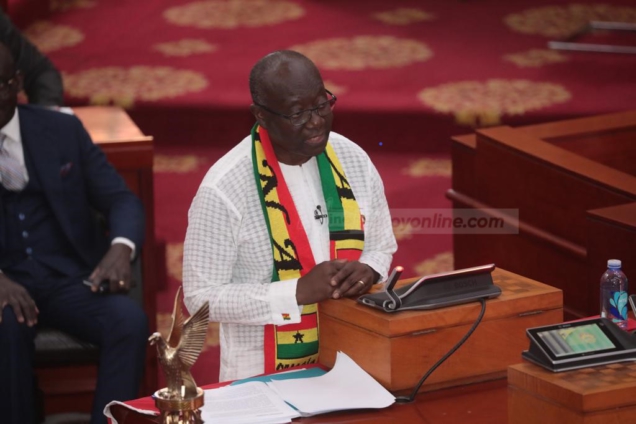Chief Executive Officer of the Chamber of Agribusiness, Anthony Morrison, has criticized the government’s introduction of 500million cedis agriculture insurance.
According to him, while an agriculture insurance may sound like a policy measure to be hailed, especially by people in the agriculture sector, that money, he believes should have been used by the government to settle its debts with key agriculture players.
Anthony Morrison, who had earlier described the 2023 budget statement as having being designed for “the bourgeoisie as against the proletariat” said the policy measure was an exhibition of the government’s disconnect with the realities on the ground.
“And I also think that if you bring a budget in and put in 500million dollars for agricultural insurance when nothing is going to agricultural extension delivery service then it is as if you are saying that you’re just putting money somewhere for someone to tap into it for free,” he said on JoyNews’ PM Express.
He explained that “Agriculture insurance will only work in this country when certain key variables are in place. We do not have proper irrigation systems; irrigation penetration rate in the country is about 17%. Probably even a little less than that. And we’re looking at the fact that we have very good externalities of bad roads increasing our post-harvest losses on the farms.
“Sometimes it takes even a week to drive a truckload of food from a farm on to the main road. And also the fact that our seed industry, government still owes the local seed producers in Ghana over 150million cedis, fertilizer producers are also being owed.
“And this is a government putting 500million into agricultural insurance when you owe the industry that is supposed to develop where you want to put the insurance. I don’t know, but trust me; this budget has no hope for the industry.”
He further noted that the government’s imposition of a 2.5% Value Added Tax on goods was rather harsh especially for the “struggling masses.”
“But above all, we have proposed certain things to the Ministry and we were expecting that the most poorest person on the streets of Accra and in Ghana today will be able to have access to bread and water. However, we’re being told that a 2.5% [VAT] somewhere is going to be placed on our commodities like wheat and other things that are imported.
“We proposed to the government to remove taxes on wheat because everybody in Ghana today eats bread almost every day or probably four times in a week. So this is a budget that has no hope for the struggling masses, no hope for the vulnerable and does not actually have any social intervention in place, does not have any kind of mechanism that will strengthen the rural economy which produces over 70% of the food we eat,” he said.
Latest Stories
-
Cucumbers – Making the most of them
5 hours -
Revenue growth to slowdown to GH¢209.3bn in 2025; T-bills will not be restructured – IC Research
6 hours -
Deloitte celebrates end-of-year Thanksgiving Service
6 hours -
Inflation to end 2025 between 10% and 12% – Databank Research
7 hours -
Government’s commitment to fiscal consolidation to remain strong in 2025
7 hours -
ImageBureau, April Communications take theatre to Nsawam Prisons
7 hours -
Bird flu kills 20 big cats at US animal sanctuary
7 hours -
Your peaceful conduct saved the country from tension – Clergymen commend Bawumia
7 hours -
A Nite of 1031 Laughs & Music to provide emergency insurance for patrons
7 hours -
Body found in wheel well of United plane after landing in Hawaii
8 hours -
Ghana Armed Forces dismisses viral audio alleging ammunition transfer
8 hours -
Former Hohoe MP Bernice Adiku Heloo passes on
9 hours -
CODEO calls for re-run of Ablekuma North, Dome Kwabenya parliamentary elections
10 hours -
4,155 cholera cases with 35 deaths recorded by December 23 – GHS
10 hours -
Mothers celebrate arrival of Christmas Day babies at Ridge Hospital
12 hours

